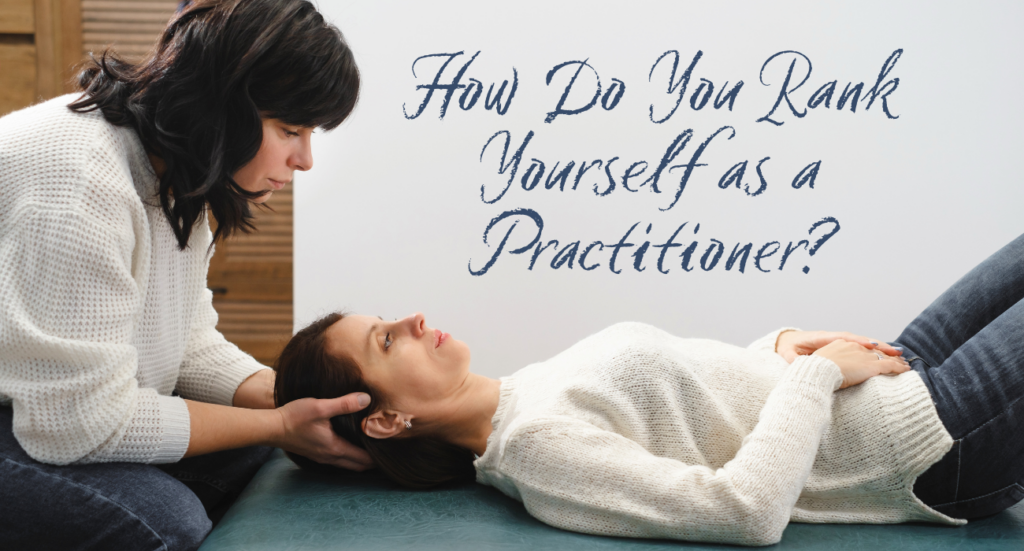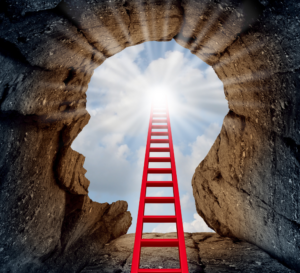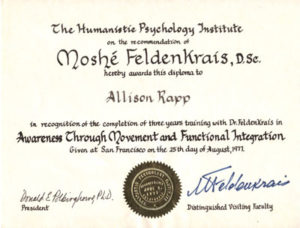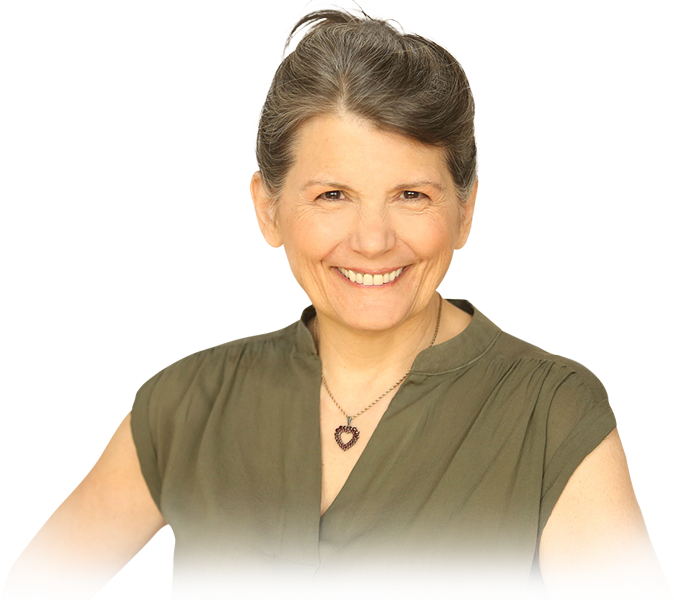
It’s not a stretch to say that if you lack confidence in your ability to help people make a difference in their lives, you’re going to have a hard time building your practice.
Over the many years I’ve been working with practitioners, a lack of confidence about expertise and value has always been on the list of “biggest reasons” people think they’re having problems.
We All Have Loads of Mental Ladders
 When you meet someone for the first time, it’s natural to make assumptions about them and compare them to yourself.
When you meet someone for the first time, it’s natural to make assumptions about them and compare them to yourself.
For example, suppose you’ve got a mental “Friendliness” ladder, where you place people you meet relative to yourself.
- If you’re both smiling, you’d likely put them on the same rung you put yourself.
- Whereas, if you’re smiling and they are not, you might put them on a rung below you.
- And if you’ve got a headache and you’re just not feeling it today, you might put them on a higher rung.
No matter what the relationship is, once you place yourself and the other person relative to friendliness or whatever other factors you’re interested in, you tend to act in accordance with your evaluation.
How this plays out for me is that if I encounter a scowling clerk in a store, I try to get them to laugh because I see them as occupying a lower rung of my mental “Having a Fun Day” ladder.

We’re Evaluating All Day Long
Much as we’d like to think that we don’t compare ourselves to anyone else, it’s probably not completely true.
To test it, just think about yourself as a driver, and get ready to use your own mental “Good Driver” Ladder. Do you see where you are on it? Now imagine two cars on the road. The car in front is driving at the speed limit and the one behind is very close.
If you’re driving the car in front, you might think “I’m being followed by a dangerous driver! A good driver—like me—leaves room to stop in case of emergency.
But if you’re at the wheel of the car behind, you might be saying to yourself, “What’s wrong with them? A good driver—like me—would have understood by now that they should pull over so I can pass.”
Have you ever been one of those drivers?
That’s what we’re talking about.

Why We Do It and What It Does To Us
In 1954, Leon Festinger proposed that Social Comparison Theory explains why we compare ourselves to others: it helps us to be better able to evaluate ourselves—our actions, feelings, opinions, abilities, traits, knowledge, looks, understanding, possessions, wealth, etc.
While some comparisons make us feel good about ourselves, others make us feel bad. Some are aspirational, others are demotivating. Some raise our confidence and some lower it. Some push us to do better and still others make us feel so inadequate that we stop trying.
What Happens in a Training Program
 Think back to the first day of your training, and remember meeting other people who were your peers. You might very well have positioned yourself and pretty much everyone else in your group on the same rung of your “Expertise in My Modality” mental ladder because you were all just beginning to learn your work.
Think back to the first day of your training, and remember meeting other people who were your peers. You might very well have positioned yourself and pretty much everyone else in your group on the same rung of your “Expertise in My Modality” mental ladder because you were all just beginning to learn your work.
Now, research shows that first impressions can last for a long time, but they can change if you stay connected to the other person and have a series of interactions that are capable of shifting what you think.
So, as time went on and you observed your classmates, listened to their questions,  traded touch experiences, joined in discussions and group exercises with them, and ate lunch together, you may have decided that some people demonstrated a better grasp of the material than you feel you have, and some clearly understood significantly less than you did. Without thinking much about it, you shifted their positions on your mental ladder accordingly.
traded touch experiences, joined in discussions and group exercises with them, and ate lunch together, you may have decided that some people demonstrated a better grasp of the material than you feel you have, and some clearly understood significantly less than you did. Without thinking much about it, you shifted their positions on your mental ladder accordingly.
However, while every single classmate was subject to being repositioned on your ladder, it would be highly unusual for you to have shifted the trainers, assistants, and experienced practitioners you were learning from away from the higher rungs they first occupied in your mental ranking.
And there’s good reason for that—if they hadn’t been on a higher rung on that first day, you wouldn’t have signed up for that training.
What Happens After You Graduate
 Now fast-forward to today.
Now fast-forward to today.
You have a diploma or certificate that says you are ready to begin.
Who are you comparing yourself to as you try to build your practice?
In other words, who’s on your “Expertise in My Modality” mental ladder now, and who are you looking at?
I’ve heard it so often from practitioners, that I’m going to guess you’ve got that ladder arranged with your trainers at the top and you somewhere far below, focused on how much more experience they have, how much more capable they are and how unlikely it is that you’ll ever catch up. 
And you’re right!
Your trainers have at least a 10-year head start.
They’ve worked with far more people than you have, and have a breadth of knowledge and a depth of experience that will take you years to acquire.
But that isn’t the point because—and I know I’m going out on a limb here—don’t you feel like it’s highly unlikely that your trainers are going to become your clients?
It’s not just that comparing yourself to them when you’re trying to attract clients isn’t useful, it’s that it derails you from finding the people you can help.

The point is that you’re looking in the wrong direction.
To Recognize Your Value as a Practitioner, Look the Other Way
 The people lower down on your ladder, the ones who have LESS understanding, LESS experience, and LESS expertise in your modality—these are the clients you are hoping to find and they are the people to compare yourself against.
The people lower down on your ladder, the ones who have LESS understanding, LESS experience, and LESS expertise in your modality—these are the clients you are hoping to find and they are the people to compare yourself against.
Let’s face it—if you practice my modality, lots of the people who call you can’t even pronounce “Feldenkrais” let alone tell you what it is, the ideas it’s based on, or what they could do to help themselves.
It’s impossible to look at those people and imagine that they belong on a higher rung on that ladder than you do.
Recognize and Embrace Your Expertise
I know that hearing something and figuring out what to do with it are two different things, so I’ve got a handout that will help you recognize the overwhelming evidence of your expertise.
Download it. Print it. Think about it.
If you take it seriously, you’ll find out that you have a level of expertise that will surprise you!
All images are from Canva. The two cars image was generated by AI.

